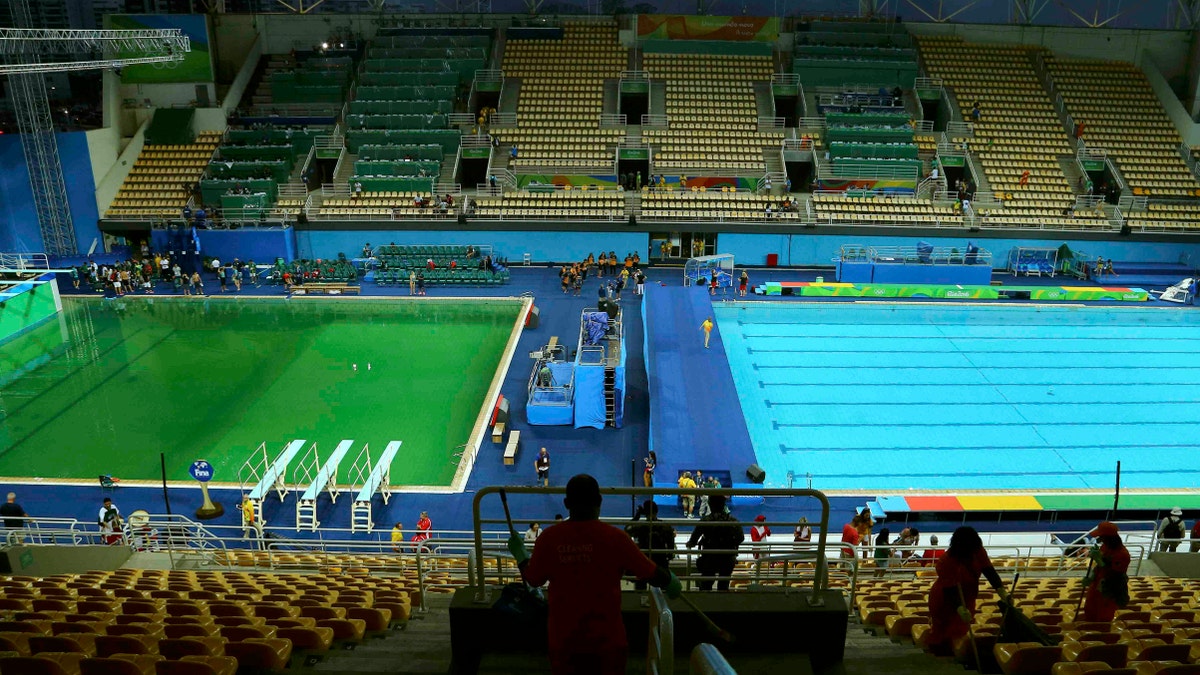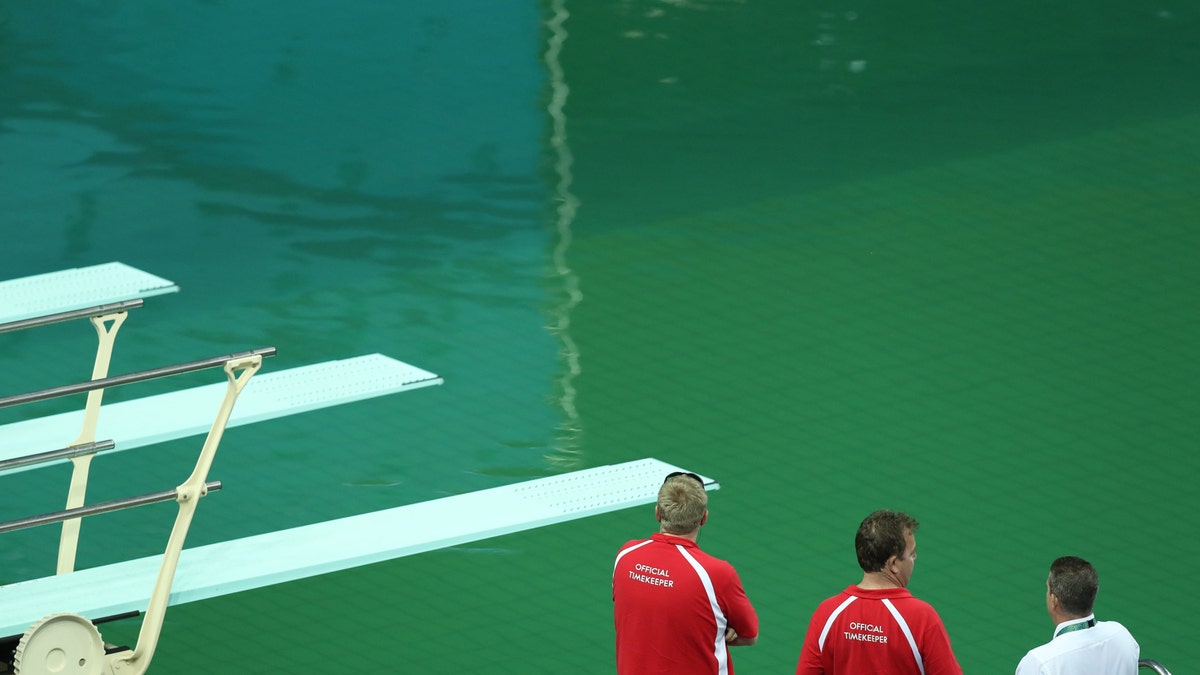
Maria Lenk Aquatics Centre - Rio de Janeiro, Brazil - 09/08/2016. General view of the Olympic diving pool (L) and the pool for the waterpolo and synchronized swimming (R). (REUTERS/Antonio Bronic)
A diving pool at the Rio Olympics turned green Tuesday when algae entered the water, stunning athletes and spectators.
The water in the diving well at the Maria Lenk Aquatic Centre had been blue on Monday, but reportedly changed hue overnight. Strangely, water in an adjacent pool remained blue, sparking plenty of debate on the internet.
Officials said that the water was tested and posed no risks to athletes.
Rio spokesman Mario Andrada said the green was caused "by a proliferation of algae."
"This was because of heat and a lack of wind," he said. "We did all the chemical tests.”
The pool’s color quickly became a topic of conversation on social media. “Wait is someone playing a joke or are we celebrating St Patty's Day early here in Rio?” tweeted U.S. diver David Boudia Tuesday.
Wait is someone playing a joke or are we celebrating St Patty's Day early here in Rio? #divingpond #Olympics pic.twitter.com/CsxxperHvM
— David Boudia (@davidboudia) August 9, 2016
“Ermmm...what happened?!,” tweeted British diver Tom Daley, who won bronze in the Men's synchronized 10m platform event Monday.
Ermmm...what happened?! pic.twitter.com/pdta7EpP2k
— Tom Daley (@TomDaley1994) August 9, 2016
Ralph Riley, vice chairman of the U.K.-based Pool Water Treatment Advisory Group told FoxNews.com that lack of chlorination could have allowed algae to enter the pool, causing it to turn green. Sunlight and high temperatures can deplete a pool’s chlorine, he added.

Maria Lenk Aquatics Centre - Rio de Janeiro, Brazil - 09/08/2016. Officials look at the Olympic diving pool (REUTERS/Antonio Bronic)
Swimming pool water is typically “turned over” every six hours, according to the expert. “You have got this process going on all the time – the water is being continuously circulated, filtered [and] treated with primary and secondary disinfectants,” he said.
However, it is not unusual for Olympic pool systems to be switched off for a brief period, Riley noted. “Quite frequently during Olympic competition, some pools will be turned off so that there’s no eddies and turbulence from the pool’s circulation system,” he added. “Just losing the chlorine could mean that it’s susceptible to being attacked by spores of algae.”
The Associated Press contributed to this report.
Follow James Rogers on Twitter @jamesjrogers